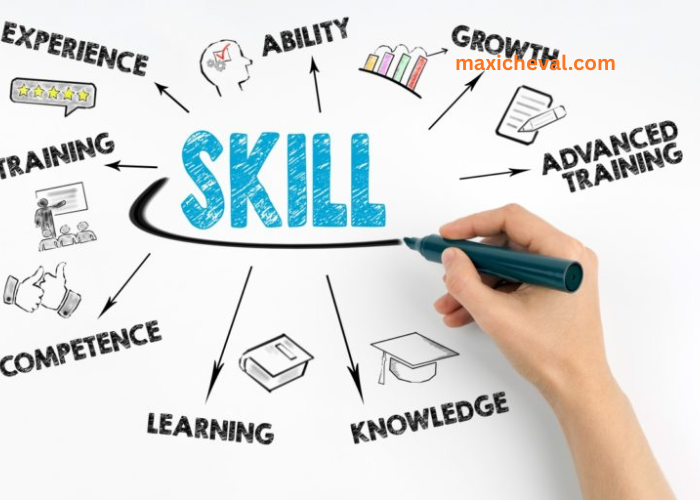Politics is a complex and often tumultuous arena where power is both the currency and the ultimate prize. It’s a realm where decisions affect millions, if not billions, of lives. To navigate this intricate landscape, one must understand the dynamics of political power. The power play in politics encompasses a broad spectrum of strategies, motivations, and consequences, making it a fascinating and critical subject of study. In this article, we will delve deep into the world of political dynamics, exploring the various facets of power, the players involved, and the implications for society at large.
Defining Political Power
At its core, political power can be defined as the ability to influence or control the behavior and decisions of others. It’s the force that drives policies, shapes economies, and defines the boundaries of society. Understanding political power requires breaking it down into its essential components.
- Institutional Power: This is perhaps the most straightforward form of political power. It’s held by individuals or groups within established institutions such as governments, legislatures, and bureaucracies. These institutions wield considerable power over the lives of citizens through the creation and enforcement of laws and regulations.
- Economic Power: Money, often referred to as “the root of all evil,” is a potent form of political power. Corporations, wealthy individuals, and interest groups use their economic resources to influence political decisions. Campaign contributions, lobbying efforts, and corporate interests are all examples of how economic power can sway political outcomes.
- Social and Cultural Power: Some individuals and groups hold power due to their social or cultural influence. Celebrities, religious leaders, and activists fall into this category. They can shape public opinion, mobilize movements, and push for change.
- Coercive Power: This is the power of force, and it’s usually held by governments through their military and law enforcement agencies. The threat or use of force is a fundamental aspect of political power, as it ensures compliance with laws and regulations.
- Informational Power: In our digital age, information is a potent form of power. Governments, media outlets, and tech giants control vast amounts of information, which they can use to shape public perception, manipulate narratives, and control the flow of information.
Understanding the Players
Political dynamics involve a multitude of players, each with their own motivations, strategies, and roles in the power play. Let’s take a closer look at some of the key actors in the political arena.
- Politicians: Elected officials are the most visible players in politics. They craft legislation, make policy decisions, and represent the interests of their constituents. However, their motivations can range from a genuine desire to serve the public to personal ambition and a thirst for power.
- Interest Groups: These organizations advocate for specific policies or issues, often using financial resources and grassroots efforts to influence politicians and public opinion. Interest groups can range from environmental organizations to the National Rifle Association, each with its own agenda and methods of exerting pressure.
- Corporations: Large corporations wield significant economic power, enabling them to influence policies that impact their industries. They engage in lobbying, campaign financing, and sometimes even threaten to relocate or lay off workers to achieve their goals.
- Media: The media plays a crucial role in shaping public perception. News outlets can frame issues in particular ways, emphasizing certain aspects while downplaying others. The media also serves as a watchdog, exposing corruption and holding politicians accountable.
- Citizens: Ordinary citizens have the power to vote, protest, and engage in political discourse. While their individual influence may seem limited, collectively, citizens can drive political change and hold those in power accountable.
- Bureaucrats: Government officials and civil servants, while not elected, play a significant role in the implementation of policies and the day-to-day functioning of government. They can either facilitate or hinder the agendas of elected officials.
- Activists: Individuals or groups advocating for social or political change often resort to activism. This can take various forms, from peaceful protests to civil disobedience. Activists can be a powerful force for change, as they draw attention to important issues and apply pressure on decision-makers.
The Strategies of Power
Understanding the strategies used to acquire and maintain political power is essential to comprehend the intricate dynamics at play.
- Coalition Building: In politics, it’s often necessary to form alliances with like-minded individuals or groups to achieve common goals. Politicians build coalitions to gain support for their policies or to secure their positions.
- Lobbying: Interest groups and corporations employ lobbyists to influence legislators and government officials. Lobbyists use a combination of persuasion, campaign contributions, and access to decision-makers to advance their agendas.
- Campaigning: Successful politicians master the art of campaigning. This involves everything from fundraising and grassroots organizing to effective communication with voters. Political campaigns are high-stakes battles for power.
- Negotiation and Compromise: Politics often requires finding common ground and making concessions to pass legislation or reach agreements. Skilled negotiators can leverage their positions to achieve favorable outcomes.
- Propaganda and Spin: The manipulation of information and public perception is a powerful tool in the political arsenal. Politicians and interest groups use propaganda and spin to shape narratives and gain public support.
- Legal Maneuvering: Lawyers and legal experts play a crucial role in navigating the intricacies of the legal system. They can challenge or defend policies and decisions in court, influencing their implementation.
- Mobilization: Activists and interest groups mobilize their supporters to take action. This can involve protests, rallies, boycotts, and other forms of collective action to pressure decision-makers.
The Consequences of Political Power
The exercise of political power has far-reaching consequences for individuals, societies, and the world at large. Here are some of the key outcomes and implications of political power:
- Policy Impact: Political decisions directly affect policy outcomes. The choices made by elected officials, influenced by various power players, shape laws and regulations that impact healthcare, education, the environment, and more.
- Economic Effects: Economic policies, tax laws, and regulations impact wealth distribution, job creation, and the overall health of an economy. Economic power often translates into political power, as those with financial resources can shape economic policies to their advantage.
- Social and Cultural Change: Political power can be a catalyst for social and cultural change. For example, policies related to civil rights, gender equality, and LGBTQ+ rights have transformed societies and expanded individual freedoms.
- Global Influence: Nations with significant political power can shape international relations, affecting trade, diplomacy, and security. Superpowers like the United States and China have global influence far beyond their borders.
- Environmental Impact: Political decisions play a crucial role in addressing environmental challenges, such as climate change. The power to regulate industries, set emissions standards, and invest in renewable energy sources can determine the planet’s future.
- Inequality: The distribution of political power can exacerbate or mitigate social and economic inequality. When power is concentrated in the hands of a few, it often leads to disparities in wealth, access to education, and healthcare.
- Corruption and Scandal: The pursuit of power can sometimes lead to corruption and scandal. Individuals and organizations may engage in unethical or illegal activities to gain or maintain political influence.




